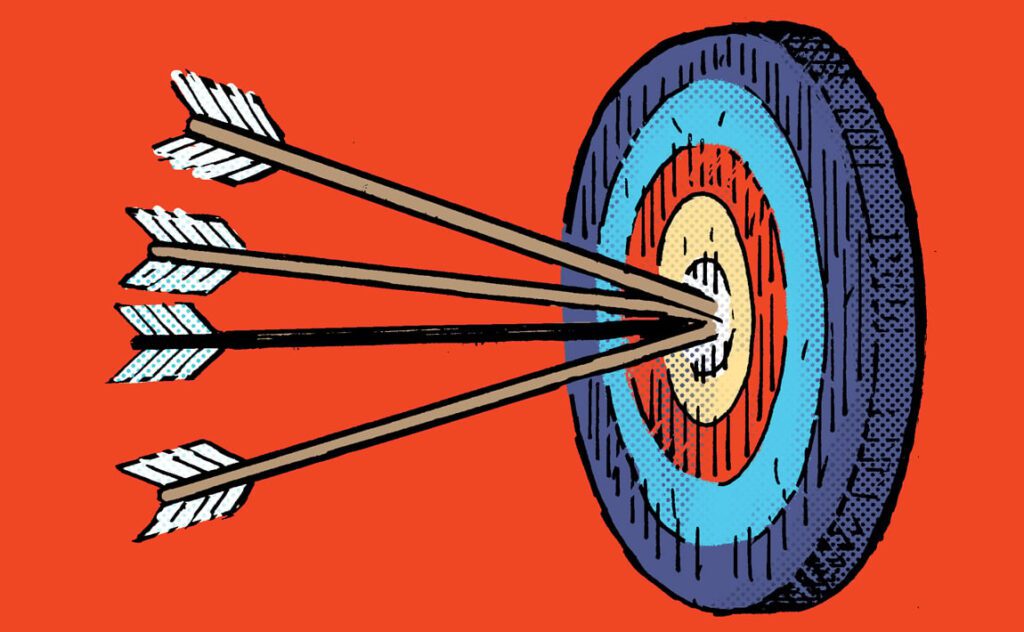Marketers spent an estimated $5.14 billion on promotional licenses in 1997, a 3 percent increase driven mostly by film tie-ins. At the same time, consumer purchases of retail goods bearing licensed characters fell 3 percent to $16.13 billion, according to The Licensing Letter, EPM Communications, New York.
Retail licensees have seen lackluster sales for a few years, so they’re backing off entertainment licenses for clothing, toys, and other soft goods. But promotion-driven licensing will continue to grow, especially for package goods and fast-food.
“We will virtually double our promotional business this summer,” says a marketing exec at a major studio. “There is a tremendous amount of consumer interest when a movie first comes out. Brands see how it drives business, because consumers are jazzed to get the products.”
The fervor continues this year, with major film properties lining up an increasing array of promotion partners, many of them longtime collaborators.
“There will probably be more entertainment licensing in 1998 than ever before,” says Charles Riotto, executive director, International Licensing Industry Merchandisers Association, New York.
While 1997 held no promotional mega-hits on the order of Burger King’s The Lion King, marketers continued to latch their brands to films for the quick blitz of publicity a movie opening brings.
“Movie licensing is a leap of faith. You have to make a decision early in the game, with not a lot to base it on. Yet brands keep coming back to the table, because the win is so huge,” says Woody Brown, principal, Building Q, a marketing and licensing consultant in Voorhees, NJ.
At the same time, marketers are perking up to TV properties for a longer promotional ride. Burger King, Kraft Foods, and Motts have signed on for Paramount Pictures’s Rugrats film, a Thanksgiving release that’s based on Nickelodeon’s hit TV show. Kraft is a longtime promotional partner of Nick’s. Rugrats, Children’s Television Workshop’s Sesame Street, and Comedy Central’s South Park were popular licensees for kids promos in 1997. British phenom Teletubbies is busy looking for partners as the show wins over kids in the U.S.
To launch adult-driven promotions, NBC formed Strategic Ventures Group this year to pursue licensing deals for shows including Saturday Night Live (whose 25th anniversary coincides with the millennium), The Tonight Snow, and Late Night with Conan O’Brien as well as its popular teen NBC Saturday morning programming, says David Eun, the NBC vp who heads up the department. NBC’s new aggressiveness follows the 1996 repeal of a Federal Communications Commission rule that restricted network ownership of shows. NBC now owns 50 percent of its shows, and “because we will own more properties, we can have an integrated strategy behind our licensing efforts,” says Eun.
Power brands Corporate licensing – renting out an established brand icon like Pillsbury’s Doughboy for a related product, like cookie jars – grew 6 percent as consumers spent $16.1 billion on such items. Nearly 85 percent of Fortune 500 companies have a licensing program, lending their names or logos to promotional merchandise and brand extensions, Riotto notes.
Harley Davidson has extended into apparel and cafes, and package goods staples such as Pillsbury and Betty Crocker continued to find partners to carry their brand names into new food store aisles and onto durable-goods shelves. When Viacom extended its Tomb Raider video game with T-shirts and classroom items like book and file covers, it gained new exposure with its target audience.
Licensees of Schering-Plough’s Dr. Scholl’s brand have developed dozens of footcare items that can be promoted together. Licensee Helen of Troy, El Paso, is planning an end-cap promotion where branded items from Schering-Plough and licensees appear together under the logo.
All this could end up lending credence to the proposition that – in the 21st century – marketers will stand alongside movie idols and sports stars as cultural icons.
* Corporate licensing rose 6 percent as marketers piggybacked popular brands.
* TV properties are getting hotter, especially kids’ shows.
* Hollywood hype still works for short-term promotions, but soft-goods retailers are losing interest.
 Network
Network

